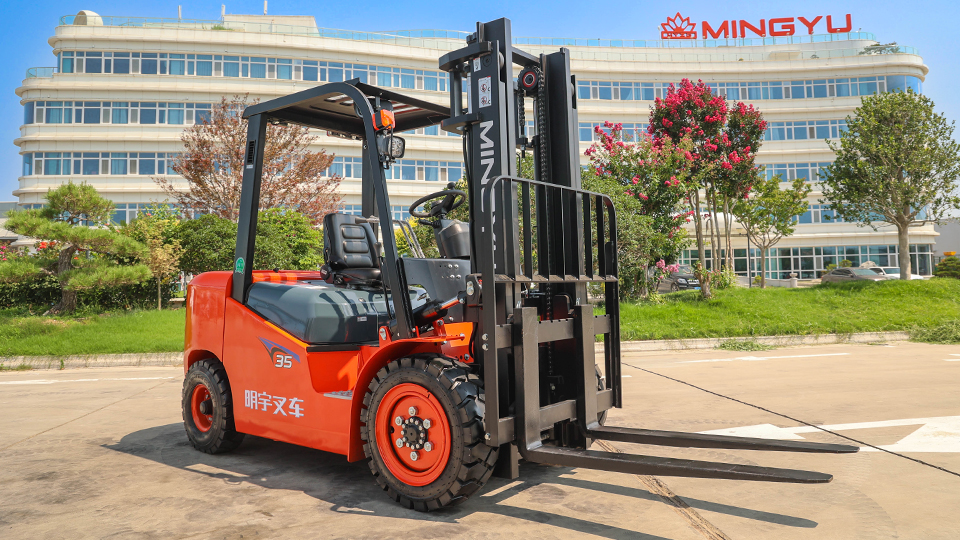
Getting Forklift Certified
Getting forklift certified is a crucial step for anyone looking to operate a forklift legally and safely. It's not just a recommendation; in many places, it's a legal requirement enforced by regulatory bodies like the Occupational Safety and Health Administration (OSHA) in the United States. Certification ensures that an operator has the necessary knowledge and skills to prevent accidents, injuries, and property damage.
Understanding the Certification Process
Forklift certification is a two-part process that involves both classroom instruction and practical, hands-on training.
Classroom Instruction: This part of the training covers the theoretical knowledge needed to operate a forklift. Topics typically include:
OSHA regulations and safety standards: Understanding the legal requirements and best practices.
Forklift anatomy and controls: Learning the function of each part of the machine.
Pre-operation inspections: How to check the forklift for potential hazards before use.
Load stability and handling: The principles of center of gravity and how to safely lift and transport loads.
Safe operating procedures: Rules for driving, turning, and working in various environments.

Hazard identification: Recognizing and avoiding common workplace dangers.
Practical Training: This is the hands-on portion where you get to operate a forklift under the supervision of a certified instructor. You'll practice:
Starting and shutting down the forklift.
Steering and maneuvering in tight spaces.
Lifting, stacking, and unstacking loads.
Driving with and without a load.
Performing a pre-operation inspection.
After completing both the classroom and practical training, you'll typically need to pass a written exam and a performance evaluation to receive your certification.
Where to Get Certified
There are several options for obtaining forklift certification, each with its own advantages.
1. Employer-Provided Training
Many companies that use forklifts provide in-house training and certification for their employees. This is often the most convenient option, as the training is tailored to the specific type of forklift and work environment you'll be using.
Pros: Free for the employee, specific to the workplace, and often conducted on-site.
Cons: May only be available to new hires or employees whose roles require forklift operation.
2. Vocational and Technical Schools
Technical colleges and trade schools often offer forklift certification programs as part of their curriculum or as a standalone course. These programs are typically comprehensive and follow a structured curriculum.
Pros: Reputable and well-structured, often taught by experienced instructors.
Cons: Can be more expensive and may require a longer time commitment.
3. Online Courses and Training Centers
Many private companies and online platforms offer forklift certification programs. Some provide a hybrid model where you complete the classroom portion online and then go to a designated location for the hands-on practical training.
Pros: Flexible scheduling, can be completed at your own pace, and often more affordable.
Cons: The practical training must still be done in person, which may not be conveniently located.

4. Forklift Dealerships and Rental Companies
Some companies that sell or rent forklifts also offer certification training. They have a vested interest in ensuring that their equipment is operated safely and correctly.
Pros: Access to a variety of modern equipment for training, often knowledgeable instructors.
Cons: May be focused on specific brands or types of forklifts.
Key Things to Remember
Certification is Not Transferable: While the skills are, your certification is tied to the specific employer and equipment you were trained on. If you change jobs, your new employer must re-evaluate your skills and provide any necessary training on their specific equipment.
Recertification is Required: OSHA regulations require forklift operators to be re-evaluated at least every three years. Recertification may be required sooner if there's been an accident or a change in the workplace environment.
Always Follow Safety Protocols: No matter where you get certified, the most important thing is to consistently follow safety procedures to prevent accidents and protect yourself and your coworkers.
In conclusion, the best place to get certified depends on your personal circumstances and career goals. Whether through your employer, a technical school, or a specialized training center, getting certified is a vital step toward a safe and successful career as a forklift operator.
Name: selena
Mobile:+86-13176910558
Tel:+86-0535-2090977
Whatsapp:8613181602336
Email:vip@mingyuforklift.com
Add:Xiaqiu Town, Laizhou, Yantai City, Shandong Province, China